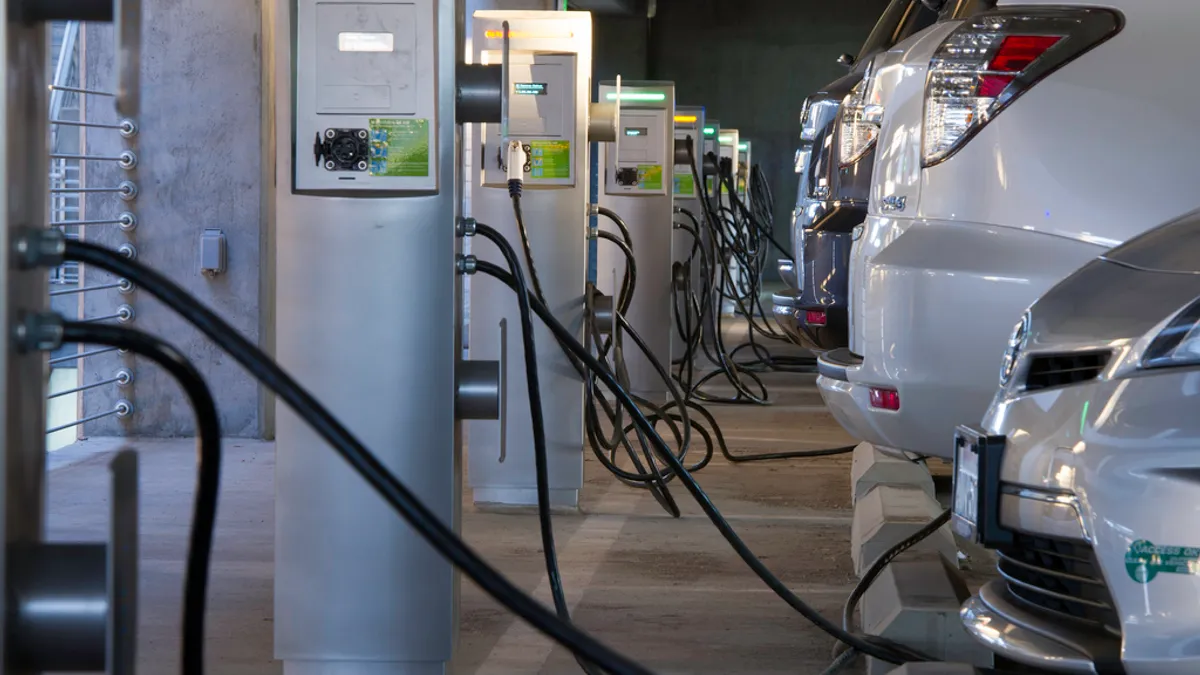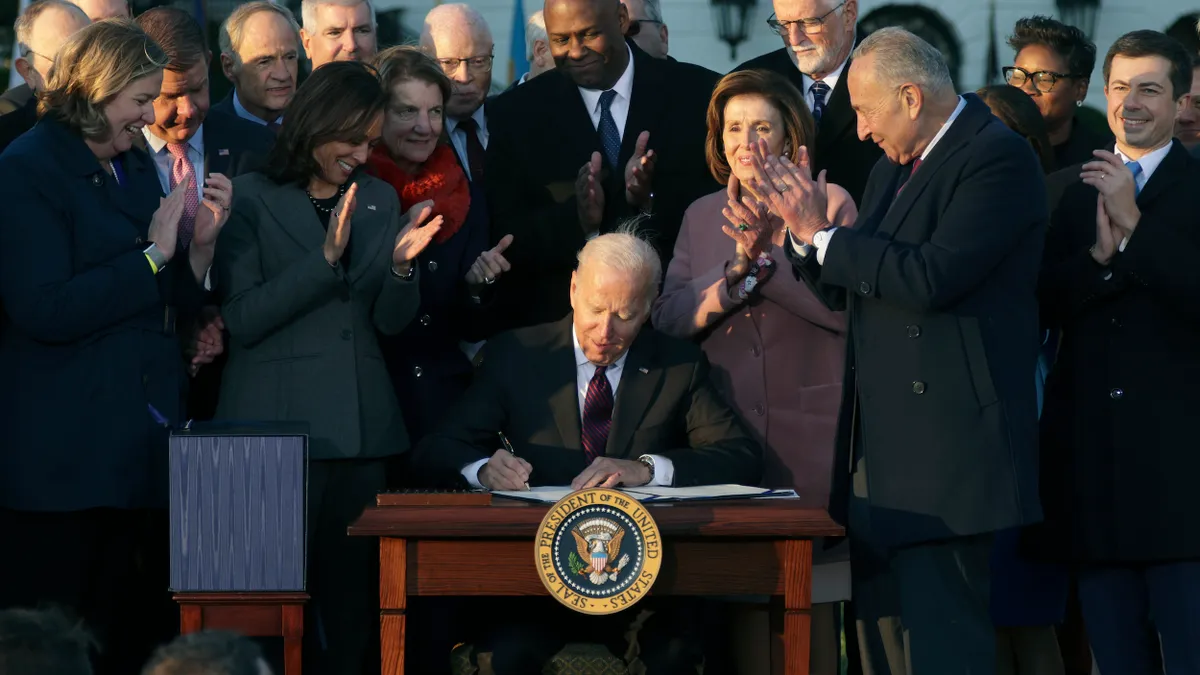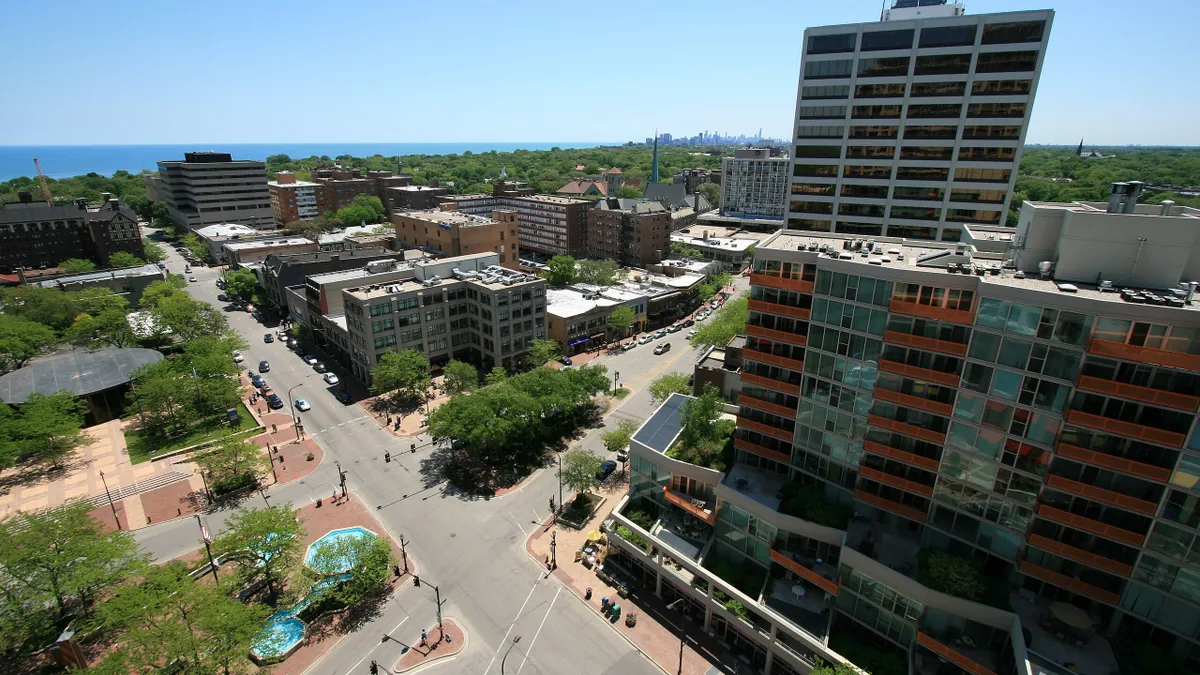Updated building codes would save U.S. homes and businesses $138 billion in energy costs over the next three decades, the U.S. Department of Energy (DOE) concluded and shared in an announcement last week. However, electric vehicle advocates see a missed opportunity to advance charging infrastructure with the new rules.
The International Code Council (ICC) finalized building codes in 2020 as part of a process that gets repeated every three years. DOE issued its conclusions on the energy cost savings of the most recent codes last week, and states and municipalities can now adopt the codes.
The ICC-approved updates to the International Energy Conservation Code (IECC) would improve energy cost savings in residential buildings by more than 8.6% relative to the previous code, the agency found. Similarly, the updated commercial building codes could result in energy cost savings around 4.3%.
The DOE determinations “reinforce the point that many states across the country have a real opportunity to cut energy costs and greenhouse gas emissions by strengthening their codes to these newest versions," Nora Wang Esram, senior director for research at the American Council for an Energy-Efficient Economy, said in an email. She added that the agency's assistance on "stretch code provisions, code adoption, and workforce training will be essential for states to achieve the projected savings."
Efficiency advocates say the new codes are a "leap forward," but they had hoped for more. Electrification requirements for new construction, including for electric vehicle charging readiness, were removed from the final version of the codes by ICC's board, though DOE has indicated some kind of code regarding EV charging equipment could come in the future.
The agency plays a "limited but important role" in the development of the building code, according to Daniel Bresette, executive director of the Environmental and Energy Study Institute, providing analysis and putting forth proposals.
"As the code continues to evolve, it's gong to need to keep up with things happening over the next decade," Bresette said. "We're going to start fueling our cars at home, start plugging them in." Building in that capability up front is much more cost effective.
Electric vehicle provisions left out of final vote
ICC members voted to support the new codes in 2019, including electrification proposals that would have required new home construction to include wiring for electric vehicle chargers. That's a "trivial cost," Plug in America Executive Director Joel Levin said, compared with the cost of retrofitting a home with new wiring for a charger.
"In the long run, building codes are a really important topic," Levin said. "It's sort of a wonky topic not too many people pay attention to, but when you think about building out EV infrastructure, building codes really matter."
However, the ICC Board of Directors, which has final say, left out four electrification provisions. In part, because of objections from the National Association of Home Builders (NAHB), which argued that electrification provisions do not have a place in conservation codes.
"We did not feel, nor did the International Code Council Board, that the appealed proposals impacted the 'effective use and conservation of energy' and did not belong in the 2021 IECC," Craig Drumheller, assistant vice president of construction codes and standards at NAHB, said in an email. "We still believe that to be the case."
NAHB says it does support "voluntary electrification efforts that consider consumer acceptance, the existing housing stock and include incentives that offset higher costs in many areas to purchase and operate an all-electric house."
Bresette said he understands the group's argument, "but I think consumption and conservation are related ... people will change the way they consume energy in their homes and the codes will have to accommodate that," whether it ultimately happens through building codes or another venue like electrical codes.
"I don't disagree there are other avenues," he said.
EV provisions in future requirements?
DOE did hint in its assessment released July 21 that it wants to see electric vehicle charging readiness in new homes. That would mean homes when constructed would be wired to accommodate electric vehicle chargers.
The agency said it plans to "increase technical assistance to support state and local governments in adopting and implementing the latest model energy codes," as well as with "new and emerging opportunities for more advanced codes that go further on energy savings and pollution reduction, and incorporate technologies like electric vehicle charging."
Levin said he is hopeful some requirement will come, and he pointed to the California Green Building Standards Code, which does require EV charging readiness in new home construction. Most states adopt the ICC but some, like California, set more ambitious requirements.
"If we are serious about shifting to EVs, this is something that rolls out over many years and is important to have," Levin said.
The next round of IECC updates will kick off in 2022, to be finalized in 2024.
According to DOE, the codes finalized by ICC in 2020 will result in about $162 in annual savings per residential unit and will help to reduce the "climate change impacts of America’s buildings sector," which currently account for about 35% of all U.S. emissions and 75% of the nation's electricity use.
“More efficient building codes are key ways to eliminate wasted energy, lower Americans’ energy bills, and reduce carbon emissions that contribute to climate change,” Secretary of Energy Jennifer Granholm said in a statement.
President Joe Biden has committed to speeding adoption of electric vehicles as a means to combat climate change, and his American Jobs Plan included $174 billion for EV investments, including chargers and vehicle purchase incentives. A bipartisan infrastructure deal is still being negotiated, AP reported on Monday.





















